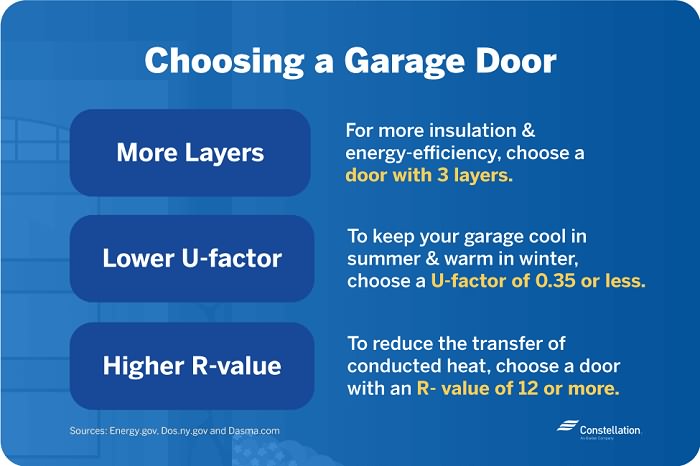Garage Door Energy Efficiency
Multiple factors determine whether a garage door is energy efficient, including the material used to make the door, the garage door R-value or U-factor, and the number of layers in the garage door. Depending on your needs, you can purchase an insulated door or retrofit your existing garage door.
Insulated Garage Door
Garage door insulation is one of the best ways to keep your garage at an ideal temperature throughout all the seasons of the year.
Garage door insulation offers the same advantages as any other insulation: it helps control garage temperature in winter and assists with cooling a garage in summer. Most garage doors have one to three layers, with more layers providing more insulation. For energy efficiency, triple layers—which includes a layer of insulation between the outer layers—is your best choice.
What is garage door U-factor?
Your garage door U-factor measures the heat transference of your garage door, or how well heat can move through the material. A high garage door U-factor means that your garage door transfers heat easily. To keep your garage cool in summer or warm in winter, you want a garage door with a U-factor of .35 or less, although the lower the U-factor the better.
What is garage door R-value?
Garage door R-value describes the ability of a garage door to slow or prevent conductive heat—when heat is transferred from one surface to another. The higher the R-value, the more the door resists conductive heat.
The standard garage door R-value recommendation for a detached garage depends on your climate, but if you’re looking for the best R-value garage door insulation, you want to find a garage door with a minimum R-value of 12 or more to be most effective.
Pro tip: Garage door R-value is only one consideration when choosing an energy-efficient door. The door’s ability to prevent air leaks is another.


